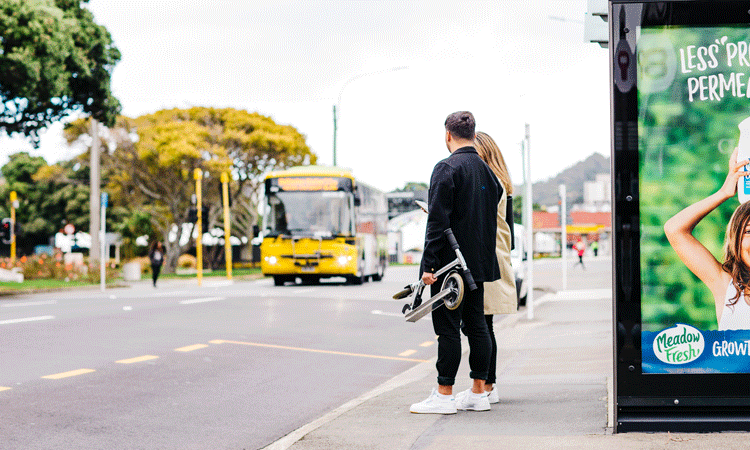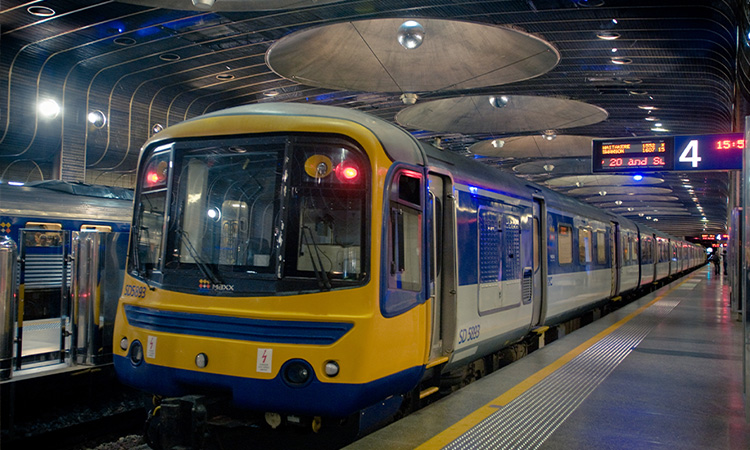The National Ticketing Solution: New Zealand’s key to making public transportation more accessible
- Like
- Digg
- Del
- Tumblr
- VKontakte
- Buffer
- Love This
- Odnoklassniki
- Meneame
- Blogger
- Amazon
- Yahoo Mail
- Gmail
- AOL
- Newsvine
- HackerNews
- Evernote
- MySpace
- Mail.ru
- Viadeo
- Line
- Comments
- Yummly
- SMS
- Viber
- Telegram
- Subscribe
- Skype
- Facebook Messenger
- Kakao
- LiveJournal
- Yammer
- Edgar
- Fintel
- Mix
- Instapaper
- Copy Link
Posted: 22 June 2023 | Yogesh Anand - Waka Kotahi NZ Transport Agency | No comments yet
Aotearoa (New Zealand) is set to be the first in the world to have one integrated public transport ticketing system for use on buses, trains and ferries across the country. For Intelligent Transport, Yogesh Anand, Executive Sponsor and Delivery Executive for the National Ticketing Solution programme at the Waka Kotahi NZ Transport Agency, provides exclusive insight into the work that is being done to make public transport journeys more seamless by implementing a single ticketing solution and discusses how this can help to encourage modal shift.


Like most countries, New Zealand’s transport and ticketing systems have grown as organically as our cities and regions have. Access to and use of public transport varies widely – and has been impacted by COVID-19 lockdowns.
Getting more people using public transport is critical if Aotearoa is to get more people out of their cars and meet the government’s environmental targets in the Emissions Reduction Plan”
Getting more people using public transport is critical if Aotearoa is to get more people out of their cars and meet the government’s environmental targets in the Emissions Reduction Plan. Increased access to public transport will also contribute to reducing New Zealand’s carbon emissions and improving safety and congestion on our roads.
Since 2016, Waka Kotahi NZ Transport Agency has been working to develop a National Ticketing Solution (NTS) that will make travel by public transport easier and more convenient. The ticketing solution will allow people to use a credit or debit card or mobile device to travel on any bus, ferry or train throughout Aotearoa and, ultimately, benefit from daily or weekly fare capping.
As a result, people will be able to tag on and off public transport using existing bank cards or mobile devices, making it easier to quickly access services and travel wherever they are in New Zealand. It will also reduce the need to buy or top-up a transit card, pre‑pay for travel, find cash or queue for tickets.
By introducing a single ticketing solution, Waka Kotahi and our public transport authority (PTA) partners can bring to all New Zealanders – and visitors to the country – access to a safe, modern, accessible, innovative and technically advanced ticketing solution that provides the economies of scale for it to be available in all cities and regions and offer a great customer experience.
Simplifying ticketing for New Zealanders
In October 2022, a participation agreement was finalised between all PTAs, Auckland Transport, Greater Wellington Regional Council, Environment Canterbury and a Regional Consortium of 10 smaller councils (Northland Regional Council, Waikato Regional Council, Bay of Plenty Regional Council, Gisborne District Council, Taranaki Regional Council, Horizons Regional Council, Hawkes Bay Regional Council, Nelson City Council, Otago Regional Council and Invercargill City Council), to be part of the national ticketing solution.
The new integrated ticketing solution… will then roll-out across the country, with everyone expected to be enjoying the benefits of the NTS by the end of 2026″
Cubic Transportation Systems will deliver the system. Cubic has a proven track record in delivering complex solutions for world leading public transport systems, including New York, San Francisco, Chicago, Queensland (Australia) and London. Cubic’s account‑based and open-payment ticketing solutions are trusted by transport agencies globally and the millions of passengers who use these every day.
Canterbury, in the South Island, will be the first region in Aotearoa to implement the new integrated ticketing solution in mid-2024. It will then roll-out across the country, with everyone expected to be enjoying the benefits of the NTS by the end of 2026.
Why integrated ticketing?
Having the same ticketing solution for different travel options makes it easier and hassle free to access public transport. In addition, research has shown that access to this type of system also improves customer satisfaction.
The ability for all New Zealanders to use a debit or credit card or a mobile device to access services will make public transport more accessible and affordable by not tying up personal funds on the pre-loaded smartcard”
Aucklanders have enjoyed easy journeys since it launched an integrated contactless transit card tag-on/tag-off ticketing system in 2012. In order to access this payment option, customers must purchase a smartcard and pre-load it with funds to tag-on/tag-off services.
The ability for all New Zealanders to use a debit or credit card or a mobile device to access services will make public transport more accessible and affordable by not tying up personal funds on the pre-loaded smartcard. A transit card will still be available for user groups who don’t have access to debit/credit cards, such as school children.
The launch of Integrated Fares (an easy‑to‑understand zone fare system that included one fare for a journey, even if it included multiple trips) led to overall customer satisfaction increasing from 83.7% to 91.3%1. This significant improvement was driven by better information and value for money for buses and trains.


Making ticketing more accessible to encourage modal shift
By improving accessibility to payment options, we’re encouraging people to use public transport; hence, encouraging more people out of their cars and reducing carbon emissions”
Improving public transport usage helps to reduce congestion on our roads and provides an alternative to private vehicle use. By improving accessibility to payment options, we’re encouraging people to use public transport; hence, encouraging more people out of their cars and reducing carbon emissions.
Most cities in New Zealand have trains, buses and/or ferries all using a different ticketing system with pre-paid cards or tickets. This means that passengers must hold and top-up multiple cards for their regular commute. Furthermore, if they travel to another region, they need to buy a new card or have cash on hand to pay for their travel. More and more, customers are using contactless debit and credit cards for retail payments and expect the same for public transport.
Improving the customer experience
Greater Wellington has had a contactless payment system in place for some time – this has been available across its full bus network since 2018 and was then expanded to its rail network in 2022. The NTS provides the opportunity to have a consistent ticketing system to other regions and to move to open loop technology, which will allow it to offer capping products and increase public transport payment options.
Having access to more accurate data will enable public transport authorities to use the information to see where improvements can be made to the network”
Moving the regions that have been using the integrated Bee Card system for a few years now to the National Ticketing Solution will provide a best fare basis for all of these customers.
If a customer has access to more than one concession, these can be loaded against their account. For each journey made, the system will work overnight to calculate and apply the lowest cost fare. Finally, the customers’ chosen payment method will be accepted across the whole country, and tagging on and off will be consistent everywhere, making public transport easy and accessible for everyone.
Furthermore, having access to more accurate data will enable public transport authorities to use the information to see where improvements can be made to the network, as well as what can be done to improve the overall customer experience. Likewise, it will also support the development of better informed policy from central government.
In summary
Ultimately, increasing the use of travel by public transport will help to shape a safe, more accessible and sustainable transport system”
The new system will provide customers with the ability to pay using whatever method they prefer, and the smart technology in the back office will be able to calculate the best fare based on where customers tag on and off.
The National Ticketing Solution will provide people with more choice to support them to make changes to the way that they travel.
Ultimately, increasing the use of travel by public transport will help to shape a safe, more accessible and sustainable transport system. It is increasingly important that, as we grow, we’re also reducing congestion and improving air quality, in order for our cities to be great places to live in.
Reference
- Auckland Transport Public Transport Customer Satisfaction survey


Related topics
Multimodality, Passenger Experience, Public Transport, Sustainable Urban Transport, Ticketing & Payments
Issue
Issue 1 2023
Related cities
Wellington
Related countries
New Zealand
Related organisations
Waka Kotahi NZ Transport Agency
Related people
Yogesh Anand








